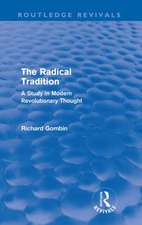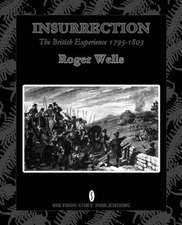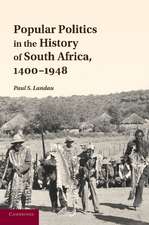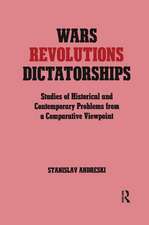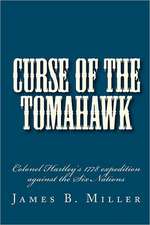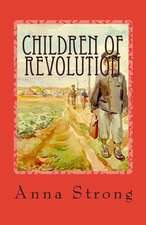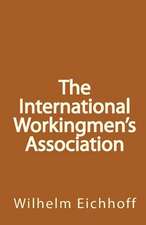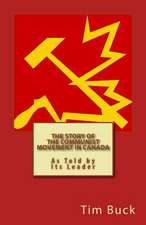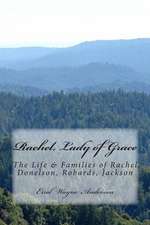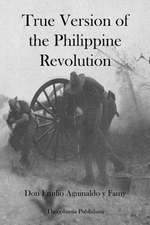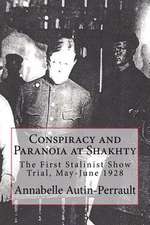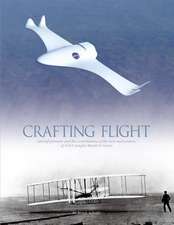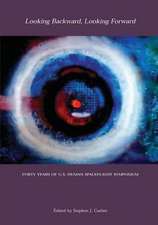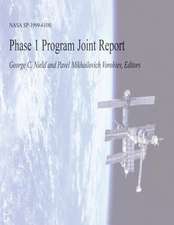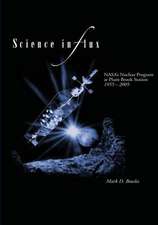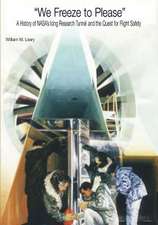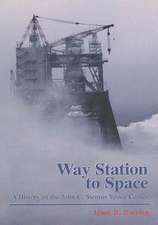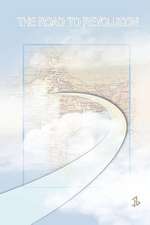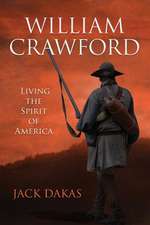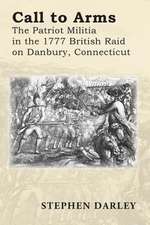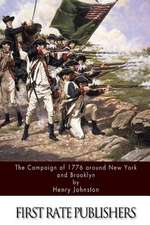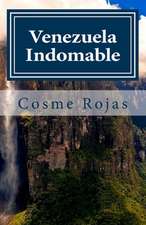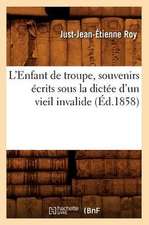Spear: Mandela and the Revolutionaries: New African Histories
Autor Paul S. Landauen Limba Engleză Paperback – 7 iun 2022
A revelatory and definitive account of how Nelson Mandela and his peers led South Africa to the brink of revolution against the postwar twentieth century’s most infamously racist regime. Spear: Mandela and the Revolutionaries brings to life the brief revolutionary period in which Nelson Mandela and his comrades fought apartheid not just with words but also with violence. After the 1960 Sharpeville police shootings of civilian protesters, Mandela and his comrades in the mass-resistance order of the African National Congress (ANC) and the Communist Party pioneered the use of force and formed Umkhonto we Sizwe (MK), or Spear of the Nation. A civilian-based militia, MK stockpiled weapons and waged a war of sabotage against the state with pipe bombs, Molotov cocktails, and dynamite. In response, the state passed draconian laws, militarized its police, and imprisoned its enemies without trial. Drawing from several hundred first-person accounts, most of which are unpublished, Paul Landau traces Mandela’s allies—and opponents—in communist, pan-Africanist, liberal, and other groups involved in escalating resistance alongside the ANC. After Mandela’s capture, the Pan Africanist Congress planned to initiate street violence, and MK organized Operation Mayibuye, an uprising to be led by trained commandos. The state short-circuited those plans and subsequently jailed, exiled, tortured, and murdered revolutionaries. The era of high apartheid then began. Spear reshapes our understanding of Mandela by focusing on this intense but relatively neglected period of escalation in the movement against apartheid. Landau’s book is not a biography, nor is it a history of a militia or an army; rather, it is a riveting story about ordinary civilians debating and acting together in extremis. Contextualizing Mandela and MK’s activities amid anticolonial change and Black Marxism in the early 1960s, Spear also speaks to today’s transnational antiracism protests and worldwide struggles against oppression.
Din seria New African Histories
-
 Preț: 251.87 lei
Preț: 251.87 lei - 19%
 Preț: 479.49 lei
Preț: 479.49 lei -
 Preț: 230.83 lei
Preț: 230.83 lei -
 Preț: 223.97 lei
Preț: 223.97 lei -
 Preț: 276.18 lei
Preț: 276.18 lei -
 Preț: 231.50 lei
Preț: 231.50 lei -
 Preț: 228.77 lei
Preț: 228.77 lei -
 Preț: 223.97 lei
Preț: 223.97 lei -
 Preț: 251.87 lei
Preț: 251.87 lei -
 Preț: 223.58 lei
Preț: 223.58 lei -
 Preț: 308.25 lei
Preț: 308.25 lei -
 Preț: 256.80 lei
Preț: 256.80 lei -
 Preț: 215.49 lei
Preț: 215.49 lei -
 Preț: 213.37 lei
Preț: 213.37 lei -
 Preț: 251.71 lei
Preț: 251.71 lei -
 Preț: 230.41 lei
Preț: 230.41 lei - 18%
 Preț: 187.01 lei
Preț: 187.01 lei -
 Preț: 230.41 lei
Preț: 230.41 lei -
 Preț: 252.70 lei
Preț: 252.70 lei -
 Preț: 278.09 lei
Preț: 278.09 lei -
 Preț: 280.34 lei
Preț: 280.34 lei -
 Preț: 294.80 lei
Preț: 294.80 lei -
 Preț: 275.98 lei
Preț: 275.98 lei -
 Preț: 293.04 lei
Preț: 293.04 lei -
 Preț: 273.85 lei
Preț: 273.85 lei -
 Preț: 272.32 lei
Preț: 272.32 lei -
 Preț: 292.83 lei
Preț: 292.83 lei -
 Preț: 258.32 lei
Preț: 258.32 lei -
 Preț: 274.27 lei
Preț: 274.27 lei -
 Preț: 280.05 lei
Preț: 280.05 lei - 23%
 Preț: 480.51 lei
Preț: 480.51 lei - 23%
 Preț: 477.86 lei
Preț: 477.86 lei -
 Preț: 257.94 lei
Preț: 257.94 lei - 23%
 Preț: 473.41 lei
Preț: 473.41 lei -
 Preț: 271.39 lei
Preț: 271.39 lei -
 Preț: 260.45 lei
Preț: 260.45 lei -
 Preț: 275.98 lei
Preț: 275.98 lei -
 Preț: 274.27 lei
Preț: 274.27 lei - 23%
 Preț: 472.21 lei
Preț: 472.21 lei - 23%
 Preț: 476.82 lei
Preț: 476.82 lei - 23%
 Preț: 475.64 lei
Preț: 475.64 lei
Preț: 226.37 lei
Nou
Puncte Express: 340
Preț estimativ în valută:
43.31€ • 45.35$ • 35.84£
43.31€ • 45.35$ • 35.84£
Carte disponibilă
Livrare economică 15-29 martie
Livrare express 04-08 martie pentru 38.66 lei
Preluare comenzi: 021 569.72.76
Specificații
ISBN-13: 9780821424797
ISBN-10: 0821424793
Pagini: 372
Ilustrații: 1
Dimensiuni: 152 x 229 x 46 mm
Greutate: 0.65 kg
Editura: Ohio University Press
Colecția Ohio University Press
Seria New African Histories
ISBN-10: 0821424793
Pagini: 372
Ilustrații: 1
Dimensiuni: 152 x 229 x 46 mm
Greutate: 0.65 kg
Editura: Ohio University Press
Colecția Ohio University Press
Seria New African Histories
Recenzii
“For those content to see Mandela as nothing more than everyone’s favorite grandpa, this book will make for uncomfortable reading; for those who want to appreciate Mandela in the fullness of his life and of the choices he made with that complex and remarkable life, this humdinger of a book will help them see Mandela in a new and more illuminating light.”—Jacob S. T. Dlamini, author of Safari Nation: A Social History of the Kruger National Park and Askari: A Story of Collaboration and Betrayal in the Anti-Apartheid Struggle
“Landau is rightly incensed with the elite nationalism of the ANC and hints at how its fault lines can be traced back to the sectarian pressure groups within the 1960s struggle movement. The ANC hardly has ‘a good story to tell,’ but something truly fresh, even sympathetic, emerges when the story of the struggle for liberation is not homogenized around their triumphalist mono-narrative tropes. Landau’s book leads the pack here.”—Rithuli Orleyn, Mail and Guardian
“This retelling of the story of Nelson Mandela’s armed rebellion between 1960 and 1964 is a fresh and exciting reinterpretation of a narrative that too often is told with the distorting effects of hindsight. Paul Landau has drawn upon conversations with a literal army of informed participants, 250 people from the movement that Mandela helped to make, its commanders, its foot-soldiers, and its camp-followers. He has also reread and reinterpreted the compendious archival record. Emerging from this research is a very different Mandela from the kindly patriarch who wrote his memoirs thirty years after these events: radical, tough-minded, and calculating. This is the story of what Nelson Mandela at the time of the rebellion was seeking to achieve, what he was thinking, and what he actually did, day by day. Most importantly, Landau offers new and persuasive explanations for the considerations that shaped Mandela’s decision-making. Spear is an astonishing breakthrough achievement.”—Tom Lodge, University of Limerick, author of Sharpeville: An Apartheid Massacre and Its Consequences
“Paul Landau offers us an outstanding book on Umkhonto we Sizwe, with the figure of Nelson Mandela at the centre of the story. He pays close attention to affective relationships among protagonists, all too rare among male scholars. The book connects biography to strategic political thinking in interesting new ways. Written in Landau’s trademark lucid and engaging style, the study is critical even while appreciative of the heroic ambitions of his subject. This gripping read is a meticulous and pathbreaking contribution to scholarship on revolutionary movements as well as to South African historiography.”—Shireen Hassim, author of Fatima Meer and The ANC Women's League: Sex, Gender and Politics
“Spear: Mandela and the Revolutionaries is one of the most important books on South Africa to appear in more than a generation. A masterpiece of analysis and careful historical reconstruction, Landau revisits a crucial moment in the country’s modern history, when a group of activists turned revolutionaries led by Nelson Mandela pursued the overthrow of the racist apartheid state. Concentrating on the early 1960s at the very moment South Africa was becoming an authoritarian order, Landau brilliantly reconstructs the world within which Mandela and others around him committed themselves to revolutionary violence—what they read, the debates that unfolded and, crucially, how they understood South Africa in the wider world. Based on unparalleled research, including an extraordinary array of interviews, Spear takes on a range of controversial subjects: the decision to use violence, the fractious struggles within the ANC’s leadership, and Nelson Mandela himself. Empathic and iconoclastic, Landau’s discoveries may unsettle some readers, but no one will be able to look at the early 1960s the way they used to, as well as the ANC’s three decade-old grip on South Africa. This timely and learned book is mandatory reading for anyone interested in South Africa, political violence, and the end of colonialism."—Clifton Crais, author of Poverty, War, and Violence in South Africa
Notă biografică
Paul S. Landau is a professor of history at the University of Maryland at College Park and a fellow of the History Centre of the University of Johannesburg. His two previous books, The Realm of the Word: Language, Gender, and Christianity in a Southern African Kingdom (1995) and Popular Politics in the History of South Africa, 1400–1948 (2010), were both finalists for the African Studies Association Herskovits Prize. Landau is interested in visual culture, religion, and popular politics. He lives with his family in Washington, DC.
Cuprins
Preface Acknowledgments Chapter 1 Crisis (March 1960) Chapter 2 The Making of the Crisis (The Postwar Era) Chapter 3 Emergency Mobilization (April 1960 to Early 1961) Chapter 4 Persuasion (June 1961 to August 1961) Chapter 5 Mandela’s Bookcase (1961) Chapter 6 Spear (Late 1961) Chapter 7 Dingane’s Day (December 1961 to Early July 1962) Chapter 8 Interruption (Mid-1962) Chapter 9 Big Country (Later 1962) Chapter 10 Operation Mayibuye (November 1962 to June 1963) Chapter 11 In Pieces (Mid-1963 to Mid-1964) Chapter 12 Revolution Displaced (1963/4 Onward) Appendix A Missing Documents Mentioned in This Book Appendix B Mandela, Communist (Nationalist) Notes Sources Index
Descriere
Spanning the years just before (and just after) Nelson Mandela’s 1962 arrest, this entirely fresh history of Umkhonto we Sizwe (MK), or Spear of the Nation, and its revolutionary milieu brings to life the period in which Mandela and his comrades fought South Africa’s apartheid regime not only with words and protests, but also with bombs and fire.

